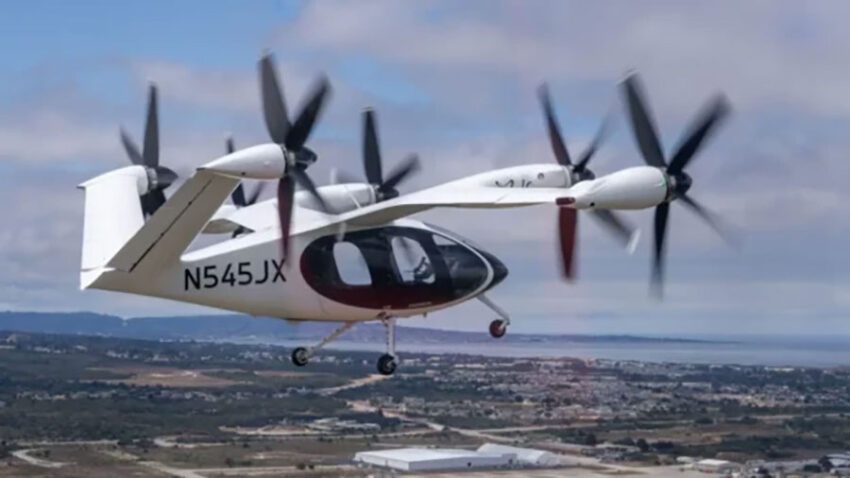
Joby Aviation targets 2026 launch with five eVTOLs in FAA certification and production set to double
Joby Aviation has confirmed it plans to have five of its electric vertical take-off and landing (eVTOL) aircraft in one of the final phases of FAA certification by 2025, marking a significant milestone toward launching commercial passenger services by 2026.
Speaking at an industry conference in Detroit, CEO JoeBen Bevirt said the company requires only one certified aircraft to initiate air tours and two to launch scheduled urban routes—particularly airport transfers. “We only need one to start air tours, and we need two to start a route,” Bevirt noted.
Joby has become a leading force in the rapidly expanding urban air mobility sector. Alongside competitors like Archer Aviation, Lilium, Airbus and Boeing, Joby is developing next-generation eVTOL aircraft for passenger transport, emergency response, and cargo delivery—combining the versatility of helicopters with electric propulsion and lower costs.
To operate commercially, Joby must complete rigorous FAA type certification, far exceeding the requirements for private-use aircraft. This includes proving the aircraft’s ability to recover safely from mechanical failure, as well as meeting safety thresholds around airworthiness, visibility, minimum altitudes, and energy reserves.
Production ramps up in California and Ohio
In parallel with its certification push, Joby has doubled its production capacity at its Marina, California facility, expanding the site to 435,000 square feet. The company now expects to manufacture 24 eVTOL aircraft annually, up from 12—a crucial step to support testing, pilot training, and the ramp-up to commercial service.
The Marina site has already produced six aircraft, including the latest unit, which received airworthiness certification within a week and is already in flight testing. The site also features training simulators, maintenance bays, and production areas for conforming components—a foundation for securing FAA production certification.
The company has logged more than 40,000 flight miles across its current test fleet of five eVTOLs and a hydrogen-powered demonstrator. Recent test milestones include simultaneous multi-aircraft flight and a successful piloted transition from hover to wingborne flight—a first for any full-scale tiltrotor eVTOL prototype.
Joby has also been conducting tests in collaboration with the U.S. Air Force at Edwards Air Force Base, and has committed to delivering two aircraft to MacDill Air Force Base by the end of 2025.
Global ambitions: UAE and beyond
The firm is currently applying for an Air Operator Certificate from the United Arab Emirates’ General Civil Aviation Authority and recently completed a successful test flight in Dubai. It aims to begin passenger services in the UAE in early 2026, followed by the rollout of a broader air taxi network in the United States, including New York and Los Angeles, in partnership with Delta Air Lines and Uber.
The company backing Joby’s expansion is Toyota, its largest investor and strategic partner. With a second $250 million investment tranche pending, Toyota’s total commitment will near $900 million. In addition to financial support, Toyota engineers are embedded across Joby’s design, quality, and manufacturing teams, streamlining processes and ensuring scalable production.
In a further vote of confidence, Joby has entered into a long-term agreement with Toyota to supply key components including powertrains and actuators. The Japanese automaker is also exploring opportunities to manufacture and operate Joby aircraft in Japan.
Meanwhile, Joby’s manufacturing ambitions extend beyond California. In Dayton, Ohio, the company has acquired a 140-acre site at Dayton International Airport. This facility, set to span 2 million square feet, will eventually be capable of producing up to 500 eVTOLs annually. Production of titanium and aluminium components is expected to begin this year.
A crowded race to the skies
Joby is not alone in scaling up. Competitor Archer Aviation is building a mass production facility in Georgia with support from automaker Stellantis, aiming to produce 650 Midnight air taxis annually.
But with its integrated approach—from R&D to operations—and deep manufacturing partnerships, Joby is positioning itself to be among the first to launch certified commercial eVTOL services in both domestic and international markets.
With FAA certification on the horizon, growing test fleets, and scalable production underway, 2026 is shaping up to be the year Joby Aviation takes off—literally and figuratively.